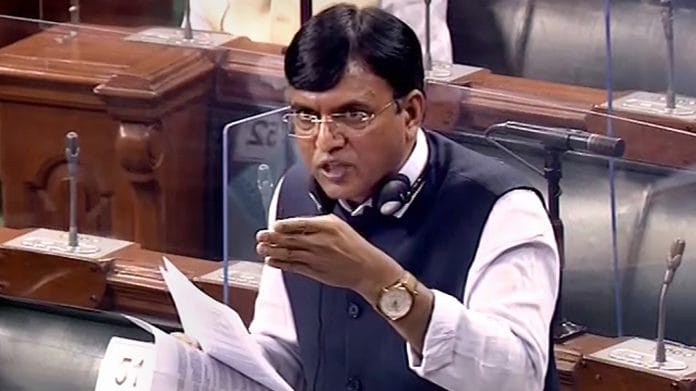New Delhi: Parliament on Wednesday passed a bill to regulate and supervise assisted reproductive technology clinics.
The Assisted Reproductive Technology (Regulation) Bill, 2021, which was passed by Lok Sabha on December 1, got the approval of Rajya Sabha with a voice vote.
The Upper House also passed The Surrogacy (Regulation) Bill, 2020 with amendments. The proposed bill was earlier passed by Lok Sabha, but Rajya Sabha had referred it to a Select Committee. It will now go back to Lok Sabha for approval.
Replying to a discussion on both the bills taken up together, Health Minister Mansukh Mandaviya said that most of the recommendations of the Select Committee have been incorporated in the surrogacy bill.
Both the bills seek to curb unethical practices related to issues like sex selection and exploitation of surrogate mothers. The provisions include both monetary penalty as well as jail terms for violations.
The minister said these bills are aimed to give respect to women facing problems in giving birth.
The bill related to surrogacy aims to constitute a National Surrogacy Board, State Surrogacy Boards and appointment of appropriate authorities for regulation of the practice and process of surrogacy.
The Assisted Reproductive Technology (Regulation) Bill, 2021 is for the regulation and supervision of the assisted reproductive technology clinics and the assisted reproductive technology banks, and prevention of misuse.
Among other objectives are ensuring safe and ethical practice of assisted reproductive technology services for addressing the issues of reproductive health where the technology is required for becoming a parent or for freezing gametes, embryos, embryonic tissues for further use due to infertility, and other conditions.
During the discussion on the bills, as well as their passage, opposition members continued to raise slogans against the suspension of the 12 MPs. Some of them were also in the Well of the House carrying placards.
Later, the House was adjourned at around 4.30 PM for the day. In the normal course, proceedings continue till around 6 PM.
Also read: Non-personal data, social media — what new ‘data protection bill’ could look like






